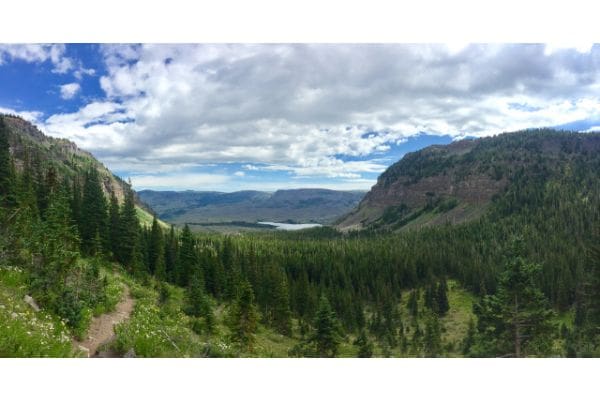Wildlife Managers Oppose Hunting Ban Ballot Initiative in Colorado

EDGEFIELD, S.C. — A proposed ballot measure aims to prohibit the legal hunting of mountain lions and bobcats in Colorado, sparking significant concern among conservationists, wildlife managers and hunters. The initiative also seeks to prohibit hunting of lynx, which are already protected by both state and federal law, with hunting and trapping banned. Initiative 91, which allows for the killing of these animals only if they threaten human life, livestock or property, could undermine decades of effective, science-based wildlife management.
The proposed initiative, championed by an animal rights organization, seeks to ban mountain lion hunting in Colorado, with its supporters ramping up efforts to gather enough signatures to place the initiative on the November ballot. However, the Colorado Wildlife Conservation Project (CWCP), a coalition of 20 organizations, including the NWTF, dedicated to conserving Colorado’s wildlife through scientific management, unveiled its strong opposition during a press conference last week.
Gaspar Perricone, chair of the CWCP, warned that Initiative 91 poses a significant risk to the state’s wildlife management framework.
“The future of Colorado’s wildlife management is at a crossroads,” Perricone said. “The underpinnings of over a hundred years of science-based wildlife management administered by wildlife professionals may be on the ballot this November, and the stakes couldn’t be higher.”
Wildlife professionals at the press conference echoed this sentiment, expressing concerns that the ballot measure would shift wildlife management from a science-based approach to one driven by emotion. They fear that banning hunting could disrupt established wildlife management practices, potentially leading to unintended ecological consequences.
Patt Dorsey, National Wild Turkey Federation director of conservation operations for the West region, underscored the success of current wildlife management practices.
“The healthy wildlife populations we have in Colorado today are no accident,” Dorsey said. “They’re the result of a lot of effort and active management with science as its cornerstone.”
Colorado Parks and Wildlife (CPW) estimates the state’s mountain lion population to be between 3,800 and 4,400. Licensed hunters who pass an educational exam have been harvesting mountain lions annually under strict regulations. Officials also inspect mountain lions periodically to record vital data such as age, sex and health, ensuring a balanced and healthy population. Bobcat populations are similarly monitored, with reports indicating stable numbers across the state.
“Mountain lion and bobcat populations are thriving in Colorado,” said Luke Wiedel, lead policy volunteer for Rocky Mountain Elk Foundation. “That wasn’t the case prior to their classification as a big game species in the state. Our wild cat populations are abundant today thanks to science-based management and regulated hunting, including extensive requirements for using ethical methods of harvest.”
The CPW also mandates that hunters prepare big game, including mountain lions, for human consumption. Hunters and trappers must present the head and hide of harvested mountain lions and bobcats for mandatory checks, a system that has proven effective in preventing waste.
According to the Colorado Parks and Wildlife, “There is no evidence of managed hunting leading to the extinction of any species in Colorado, or of well-regulated hunting negatively affecting the population stability of the state’s mountain lions.”
The West Slope Plan exemplifies this approach, providing a science-based framework for maintaining a stable lion population. The plan includes rigorous safeguards on harvest levels, annual evaluations and protections for adult female lions to prevent overharvest. The CPW views hunting as a crucial component of wildlife management, essential for maintaining healthy predator populations and ecological balance.
“Wildlife management must take into consideration the needs of wildlife and the people who coexist with that wildlife,” said Madeleine West, public lands director for the Theodore Roosevelt Conservation Partnership. “This initiative would limit the ability of state wildlife managers to meet those needs to best serve Colorado citizens and wildlife.”
As the debate intensifies, Colorado voters will need to weigh the value of established scientific management practices. The outcome of this measure could set a precedent for wildlife management policies not only in Colorado but across the nation.
